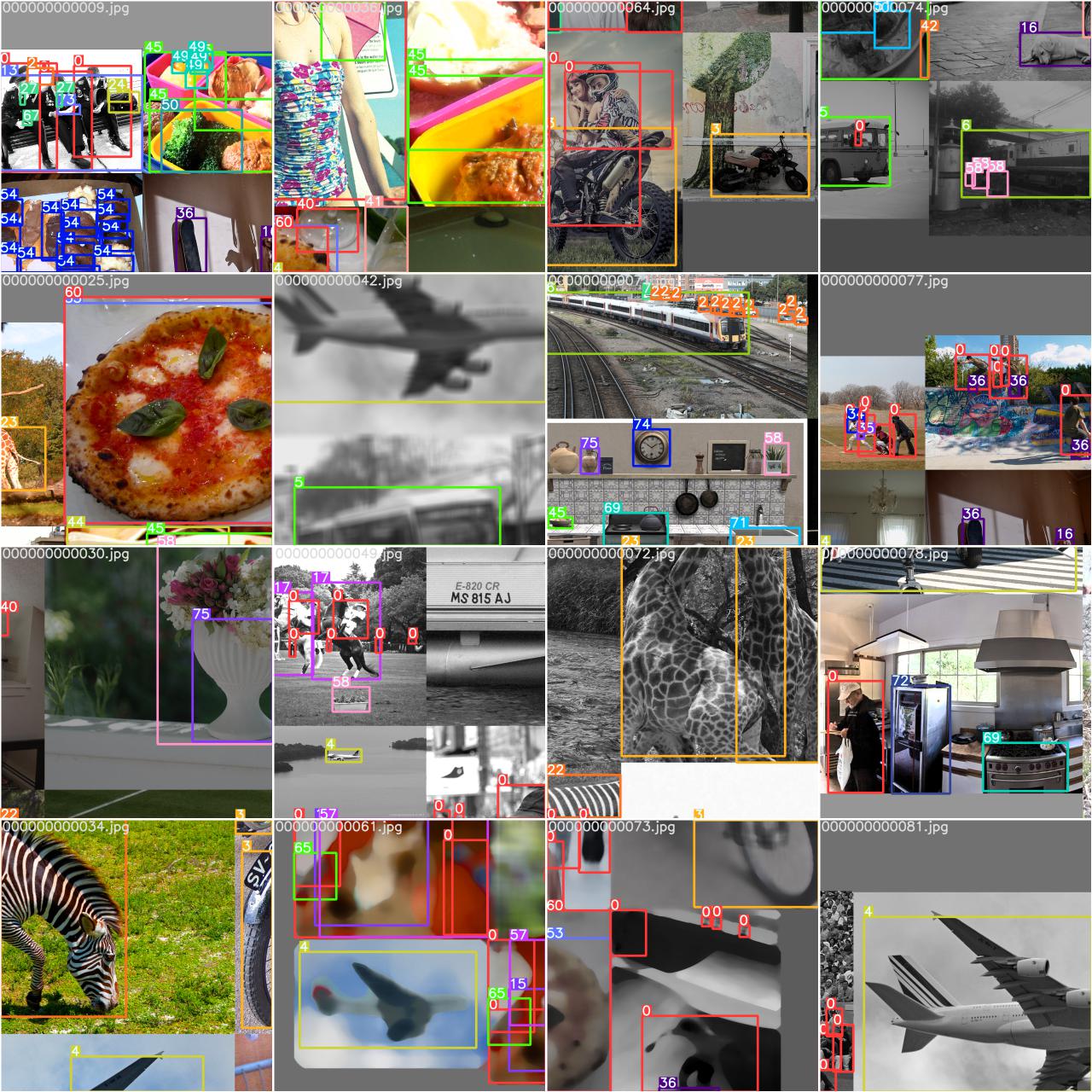👋 Hello @adrianholovaty, thank you for your interest in 🚀 YOLOv5! Please visit our ⭐️ Tutorials to get started, where you can find quickstart guides for simple tasks like Custom Data Training all the way to advanced concepts like Hyperparameter Evolution.
If this is a 🐛 Bug Report, please provide screenshots and minimum viable code to reproduce your issue, otherwise we can not help you.
If this is a custom training ❓ Question, please provide as much information as possible, including dataset images, training logs, screenshots, and a public link to online W&B logging if available.
For business inquiries or professional support requests please visit https://www.ultralytics.com or email Glenn Jocher at glenn.jocher@ultralytics.com.
Requirements
Python 3.8 or later with all requirements.txt dependencies installed, including torch>=1.7. To install run:
$ pip install -r requirements.txtEnvironments
YOLOv5 may be run in any of the following up-to-date verified environments (with all dependencies including CUDA/CUDNN, Python and PyTorch preinstalled):
- Google Colab and Kaggle notebooks with free GPU:
- Google Cloud Deep Learning VM. See GCP Quickstart Guide
- Amazon Deep Learning AMI. See AWS Quickstart Guide
- Docker Image. See Docker Quickstart Guide
Status
If this badge is green, all YOLOv5 GitHub Actions Continuous Integration (CI) tests are currently passing. CI tests verify correct operation of YOLOv5 training (train.py), testing (test.py), inference (detect.py) and export (export.py) on MacOS, Windows, and Ubuntu every 24 hours and on every commit.








Hello — thanks so much for this project. It's really great! Not only is the performance top-notch, the documentation and developer experience are very solid as well.
I noticed in the generated "mosaic" images that sometimes images are flipped into a mirror image. Does this mean that yolo is learning to detect objects in that flipped perspective? I work with image data in which there is an important difference between an image and the "flipped" version of itself, so I want to make sure my model won't be learning the wrong thing.
If yolo is indeed learning the flipped images, is there a way to disable this? Or do I not need to worry about it?